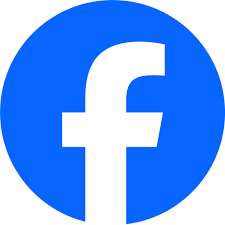
Introduction
Facebook, now known as Meta Platforms, Inc., is one of the world’s leading social media platforms. Founded by Mark Zuckerberg and his college roommates in 2004, it has grown from a Harvard dormitory project to a global powerhouse that connects billions of people. This article will delve into Facebook’s history, features, controversies, and its future under the Meta rebranding.
The Birth of Facebook
Facebook was launched on February 4, 2004, initially called “Thefacebook.” The platform was designed to help college students connect and share information. Within 24 hours of its launch, over 1,200 Harvard students had signed up. Seeing its rapid success, Zuckerberg and his team expanded the service to other Ivy League universities and eventually to colleges across the United States and Canada. By 2006, Facebook was available to anyone over the age of 13 with a valid email address.
Growth and Expansion
Facebook’s user base grew exponentially, and so did its features. Initially, users could create profiles, upload photos, and add friends. Over time, Facebook introduced new functionalities:
- News Feed (2006): This feature revolutionized how users interacted with content, showing a real-time stream of posts from friends and pages they followed.
- Pages (2007): Businesses, brands, and public figures could create profiles to interact with users.
- Like Button (2009): This simple feature allowed users to show appreciation for posts and content quickly.
- Timeline (2011): A major redesign of user profiles that presented a chronological timeline of posts and events.
Acquisitions and Innovations
Facebook didn’t just rely on its initial success; it expanded by acquiring other companies and integrating new technologies:
- Instagram (2012): Acquired for $1 billion, Instagram brought a new dimension to Facebook’s portfolio, focusing on photo and video sharing.
- WhatsApp (2014): For $19 billion, Facebook acquired this popular messaging app, significantly expanding its global communication capabilities.
- Oculus VR (2014): This $2 billion acquisition marked Facebook’s entry into virtual reality, aligning with Zuckerberg’s vision for the future of social interaction.
Features and Functionalities
Today, Facebook offers a wide array of features designed to keep users engaged:
- Stories: Temporary posts that disappear after 24 hours, similar to Instagram Stories and Snapchat.
- Marketplace: A platform for users to buy and sell items locally.
- Groups: Communities where users can join discussions based on interests, hobbies, or professions.
- Facebook Live: A live-streaming feature that allows users to broadcast events in real-time.
- Messenger: Originally part of the main app, Facebook Messenger is now a standalone app for instant messaging, video calls, and more.
Controversies and Criticisms
Despite its success, Facebook has faced numerous controversies and criticisms over the years:
- Privacy Issues: Facebook has been criticized for its handling of user data. The Cambridge Analytica scandal in 2018, where data from millions of users was improperly used for political advertising, led to widespread scrutiny and calls for better data protection.
- Fake News and Misinformation: The platform has struggled with the spread of fake news and misinformation, especially during election periods. Facebook has implemented various measures to combat this, but the issue persists.
- Mental Health Concerns: Studies have suggested that excessive use of Facebook can lead to mental health issues such as anxiety, depression, and loneliness. The company has been working on features to promote well-being, like time management tools.
- Content Moderation: Balancing free speech and harmful content has been a significant challenge. Facebook’s content moderation policies have been criticized for either being too lax or too strict.
The Rebranding to Meta
In October 2021, Mark Zuckerberg announced that Facebook Inc. would rebrand as Meta Platforms, Inc. This change reflects the company’s new focus on building the “metaverse,” a collective virtual shared space created by the convergence of virtually enhanced physical reality and physically persistent virtual reality. The metaverse aims to offer immersive digital experiences through augmented reality (AR) and virtual reality (VR) technologies.
Facebook’s Role in Meta
While Meta is the new overarching brand, Facebook remains a crucial part of its ecosystem. It continues to serve as a major social networking platform, with ongoing updates and new features to enhance user experience. The rebranding signifies Meta’s ambition to diversify beyond social media and explore new frontiers in digital interaction.
In Facebook Graphics desinging has the parts.
Future Prospects
Under the Meta umbrella, Facebook and its sister platforms like Instagram and WhatsApp are expected to evolve with new technologies and features. Some anticipated developments include:
- Enhanced Virtual and Augmented Reality: Leveraging Oculus technology to create more immersive social experiences.
- AI and Machine Learning: Improving content recommendations, enhancing security, and moderating content more effectively.
- E-commerce Expansion: Building more robust tools for businesses to sell products directly through Facebook and Instagram.
- Metaverse Development: Creating interconnected virtual spaces where users can work, play, and socialize in entirely new ways.
Conclusion
From a college networking site to a global technology conglomerate, Facebook’s journey has been nothing short of remarkable. Despite facing numerous challenges, the platform continues to adapt and grow, shaping how people connect and communicate worldwide. As Meta, the company is poised to lead the next wave of digital innovation, exploring new horizons with the metaverse and beyond. Whether Facebook will maintain its dominance in the ever-evolving digital landscape remains to be seen, but its impact on the world is undeniable.
